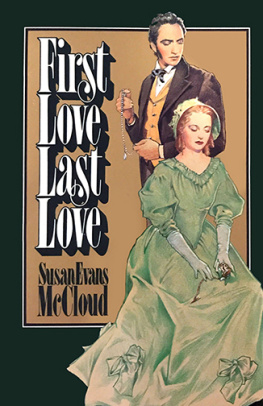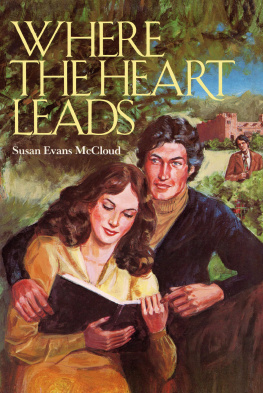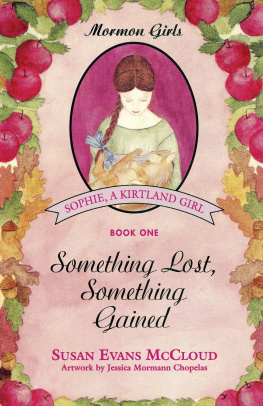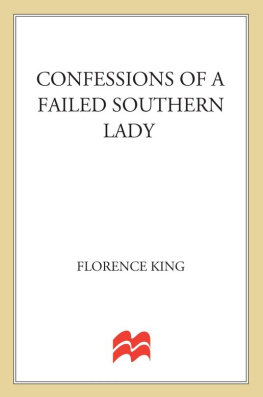1993 Bookcraft, Inc.
All rights reserved. No part of this book may be reproduced in any form or by any means without permission in writing from the publisher, Deseret Book Company, at permissions@deseretbook.com or PO Box 30178, Salt Lake City, Utah 84130. This work is not an official publication of The Church of Jesus Christ of Latter-day Saints. The views expressed herein are the responsibility of the author and do not necessarily represent the position of the Church or of Deseret Book Company.
Bookcraft is a registered trademark of Deseret Book Company.
Visit us at deseretbook.com
First printing in hardbound 1993
First printing in paperbound 2019
Library of Congress Catalog Card Number: 93-72858
ISBN 0-88494-898-6 (hardback)
ISBN 978-1-62972-701-1 (paperback)
eISBN 978-1-62973-861-1 (eBook)
Printed in the United States of America
Alexanders Print Advantage, Lindon, UT
JIT
Jacket illustration by Bruce Martin
Hand lettering by James Fedor
To Dr. Jack Johnson
whose enthusiastic, in-depth professional counsel
has strengthened and enlivened my books
and whose loyal friendship has enriched my life
Contents
All characters in this book are fictitious,
and any resemblance to actual persons,
living or dead, is purely coincidental.
Chapter
I walked home past the Chateau des Ducs, as I did every afternoon. I had left the library in Dijon directly at four and taken the bus back to Chatillon, as was my usual habit. It was a hot August day, and I noticed that the harebells and poppies growing along the dusty roadway looked wilted, their heads drooping as my own did in the intense heat. And there was a shimmer, a glaze over the far fields that stung my eyes when I looked at it. It was much too hot and dry to move quickly. I carried three heavy books in the crook of my arm, my purse slung over my shoulder, and I wore a wide-brimmed straw hat to protect my fair skin from burning. I hummed as I walked. I felt lazy and dreamy, and content.
As I stepped inside the cool, darkened interior of my mothers kitchen I could smell warm bread and the herbed pungency of fish frying. I sighed as I set my books on the table and poured a glass of cold milk. My mother was an excellent cook. She took good care of me. I was all she had left. That is why I was surprised by the letter she handed me, surprised by the sudden color in her cheeks and the obvious excitement in her eyes.
From America. From my friend in Salt Lake City, Augustine. Read.
I drew the letter out slowly. I did not share my mothers enthusiasm for all things American. I felt uneasy as I unfolded the paper and saw the English words written there. Why didnt she write you in French? I asked.
My mother shook her head; an impatient gesture. It has been years since she was here. French no longer comes easy for her. You know the English better than I do, Augustine. Read.
After the first line or two I sat down. Before the letter was half finished I thrust it across the table at my mother. You are both crazy, I said, making a thin, hissing sound between my teeth. I do not want to go.
You want to go, my mother said very gently. You are only afraid.
Maman, I protested, why do you decide what is best for me?
Because I am your mother.
I am nearly a grown woman now.
I am still your mother.
I hissed through my teeth again. I know my own mind.
My mother smiled. Her smile could always undo me. It was the smile of a child; open and guileless, with something soft and vulnerable in it. Ma petite, you know your own mind. But that is not the same thing as knowing what is best for you. Her eyes narrowed and grew serious. This is a miracle, Augustine. This is an answer to prayer.
What could I say to her? You would send me to school in America? You would live alone here, scrimping and saving and lonely? She sat smiling and nodding at me. I drew a deep breath. You would take this womans charity?
To my surprise, my mother laughed out loud. This is not charity, foolish girl. This is the gospel. This is love. Her eyes were shining now.
No, I do not understand. And I do not wish to go.
Read on, she said, handing me the letter.
This woman who had written the letter, this Martha Pratt living in Salt Lake City, was the missionary who had found my mother and brought her the gospel of Jesus Christ seven years ago. Now her young husband had died in an accident. She was left with two children to raise and a huge sum of money, more money than she neededenough money to make a dream come true for her dear friend in France. God moves in his own ways, she wrote. And even out of great sorrow some joy may come forth.
My mother had tears in her eyes. I had forgotten how badly she wanted this. It was her dream, not mine. It had always seemed impossible, unrealistic, and I had given no weight to it; I had merely humored her obsession. Now this Martha Pratt, whom I vaguely remembered as a bubbly, bouncing, bright young American, had set her hand on my life, taking upon herself the power to change everything, to alter my very existence!
The fish will spoil, my mother said suddenly. Come, eat the good food I have prepared. Then we will talk again.
But for me the good food had been spoiled. The good food and the warm, languid evening, and the sense of sameness and peace, going on as I wanted it, unendangered, unbroken. I knew we could argue and discuss all we wanted to, but in the end I would go. In the end my mother, who knew what was best for me, would have her own way. She would break her own heart securing a dream for me that I wanted no part of. She would send me away from her to this Mecca called Zion, even if it proved the undoing of us both.

The following day was Saturday and I did not go to my job at the library. But that morning, buying baguettes for my mother at the market, I saw my friend, Armand.
No sweets, Augustine, it is bad for the figure. What dainties do you have tucked in there with your mothers baguettes?
Armand was a great one for teasing. Without knowing I was going to, I said simply, Im going away, Armand.
He stood blinking back at me. What do you mean? Are you planning a visit to your brother in Paris?
I shook my head at him. That is not going away, Armand. I am going to school in America. In less than three weeks I am to leave. It is my mothers dream for me.
He tried to look pleased, but a slight frown was beginning to crease his broad forehead. You, yourself, do not wish to go, Augustine?
Armand and I had an unusual relationship. He was five years older than I; he was like the big brother I lost when I was a childthough he used to tease and claim he was waiting for me to grow up enough to marry. But by the time I did he decided he was too old to take such a foolish step. He was now just twenty-five, not past the marrying age by any means. But he was a born tease.
He led me now to the steps of the old church and, placing his hands on my shoulders, sat me down gently. Tell me all about it, he said.
I am ashamed to admit it, but I disliked talking about Mormonism to my friends. No other people in my small town were Mormons. Our religion was not well thought of there. But I could not explain what was happening to me without the Church coming in.
My mother has a friend who lives in Salt Lake City, Utah. She has been working, with my mothers knowledge, for over a year to obtain a scholarship for me to go to school there. And she is willing to pay the remainder of the expenses herselfthe air fare, the cost of my living quarters when I arrive. I made the high hissing sound with my teeth that is my habit when I get upset.
















